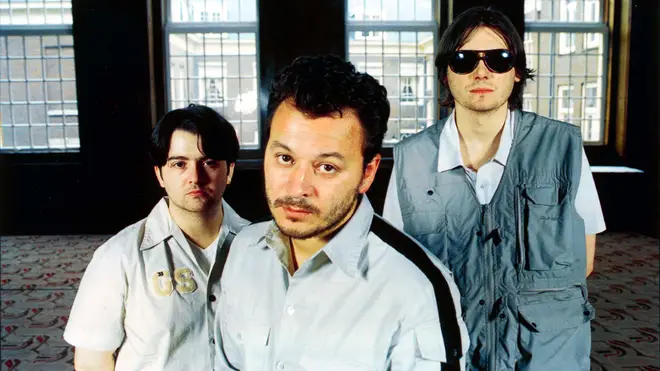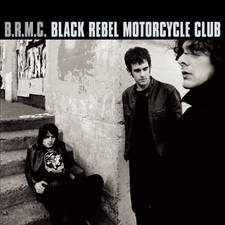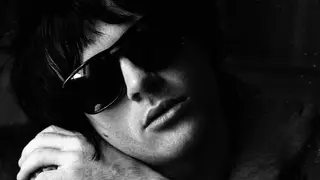How A Design For Life gave Manic Street Preachers a new start
15 April 2025, 19:00

Manic Street Preachers - A Design For Life
The Welsh band overcame personal tragedy to create one of their biggest songs.
The story of Manic Street Preachers is one of tragedy and triumph. It's well-known that on 1st February 1995, the day before he was due to fly to the US to start a promotional tour, guitarist Richey Edwards disappeared. He has not been seen since.
It's also well-known that Manic Street Preachers continued as a trio - and are still together today, with their fifteenth studio album Critical Thinking released in February 2025.
For vocalist and guitarist James Dean Bradfield, bassist Nicky Wire and drummer Sean Moore, the making of their comeback single was a huge statement of intent - and defiance.

The song, A Design For Life, would be their biggest hit to date. Richey Edwards and Nicky Wire had shared the lyrical duties in the Manics, so the writing of the first new song after the guitarist's disappearance was a daunting task.
"Nick actually stepped up to the plate with that lyric," Bradfield later told Q magazine. "The pressure was on him - him more than anybody - and he'd lost his writing partner."
Wire remembered writing the lyrics when talking to Q in 2011. "It was originally a two-page poem. One side was called A Pure Motive and the other, A Design For Life."

"At the time I was reading a lot of George Orwell and my wife was working in the libraries of Newport," he told the BBC in 2009. I think it's at Pill library, over the door it just says "knowledge is power" and it was just a question of putting the two together."
The public library system gave working class kids like Wire access to literature and ideas from all over the world. "I used to do a lot of revision in Blackwood Library for my O Levels and A levels and my mum always used to go there," he revealed.

"It's about something other than our own torments," Wire admitted to Select magazine shortly after the single was released on 15 April 1996. "Once that was in the bag, it felt different."
The song begins with the simple line inspired by the words over the entrance to Pillgwenlly Library. "Libraries gave us power / Then work came and made us free." The latter part of the opening couplet is a reference to the chilling words posted over the entrance to Auschwitz concentration camp where at least 1.1 million prisoners were murdered: Arbeit macht frei ("Work makes you free").
"The song was inspired by what I perceived as the middle classes trying to hijack working-class culture," explained Wire. "That was typified by Blur's Girls And Boys, the greyhound image on their Parklife cover. It was me saying, This is the truth."
This rallying cry for the working classes continues with a couplet that would end up being sung by festival crowds around the world: "We don't talk about love / We only wanna get drunk."

Manic Street Preachers - Design for Life (Live from Cardiff Millennium Stadium '99)
Wire sent his lyrics to Bradfield, to be set to music. Bradfield told Q in April 2011: "I remember being incredibly nervous when the first proper set of Nick's lyrics arrived five months after Richey disappeared. I didn't actually start writing anything for a few days after they came, which is strange for me as I usually start pretty much the second I've torn open the envelope."
"James phoned me up after he'd written it," Wire recalled. "He said it was something special. Ennio Morricone, a bit of Tamla, a bit of Spector. Our only reservation was that it might be too epic."
But Bradfield was unrepentant. "When I was writing it, I could hear strings," he said. "It would have been a denial of the song to make it sound small."
Working on the album that was to become Everything Must Go, the trio and producer Mike Hedges enlisted Martin Greene to produce a string arrangement for the track.

Manic Street Preachers - If You Tolerate This Your Children Will Be Next
For Nicky Wire, the epic scale of A Design For Life was exactly what the Manics needed after the claustrophobic, harrowing pain that had characterised the songs on their previous album, The Holy Bible.
"It sounded really simple and great," he confessed. "Richey would try to make something more complicated than it needed to be at times, which is why I loved him, and why he was so brilliant, but that set of rules had been broken."
When A Design For Life debuted on the UK singles chart on Sunday 21 April 1996, it went straight in at Number 2 and remained in the Top 40 for another six weeks. The next four Manic Street Preachers singles would all be Top 10 hits, culminating in their first Number 1 in 1998: If You Tolerate This Your Children Will Be Next.
As Wire put it, "We could have choruses that repeated the same lines and glorious pop moments without thinking about any kind of credibility issues. It was a release."

Manic Street Preachers open Cardiff Central Library
In 2009, the public library system of Wales repaid the tribute to A Design For Life when the new £15 million Cardiff Central Library was opened with a plaque that bore the words "Libraries gave us power".
Manic Street Preachers were there as the Cardiff Arms Park Male Voice Choir sang A Design For Life. Nicky Wire said that opening the library was "a good and humble and non-rock 'n'roll kind of thing".
Sources of quotes:
- Select: We Shall Overcome, July 1996
- Q: The Long Goodbye, December 2006
- BBC: Manics "humble" library opening, June 2009
- Q: 50 Ultimate British Songs: A Design For Life, April 2011
Read more:
- Everything Must Go by Manic Street Preachers - the stories behind the songs
- Manic Street Preachers recall "nearly frightening" time supporting Oasis
- What happened to Richey Edwards of Manic Street Preachers?





